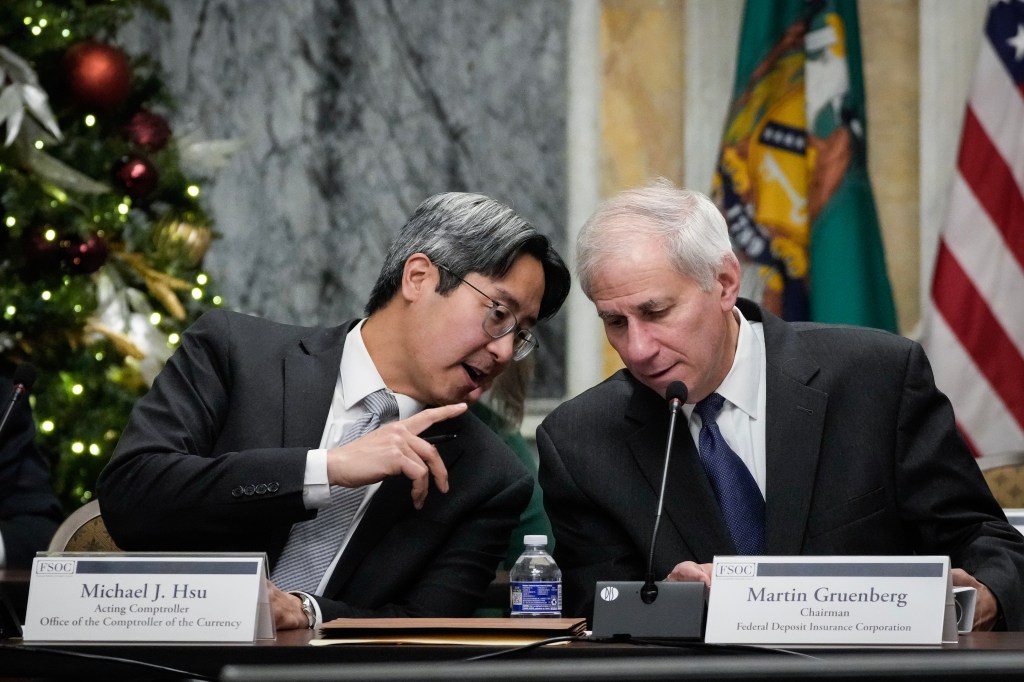The Federal Deposit Insurance Corporation (FDIC) issued a proposal July 30 that would increase its oversight of the largest asset managers, such as BlackRock and Vanguard, that hold hefty investments in banks.
The proposal would “launch a broader inquiry into very large asset managers that are accumulating increasingly large
Register for free to keep reading
To continue reading this article and unlock full access to GRIP, register now. You’ll enjoy free access to all content until our subscription service launches in early 2026.
- Unlimited access to industry insights
- Stay on top of key rules and regulatory changes with our Rules Navigator
- Ad-free experience with no distractions
- Regular podcasts from trusted external experts
- Fresh compliance and regulatory content every day













